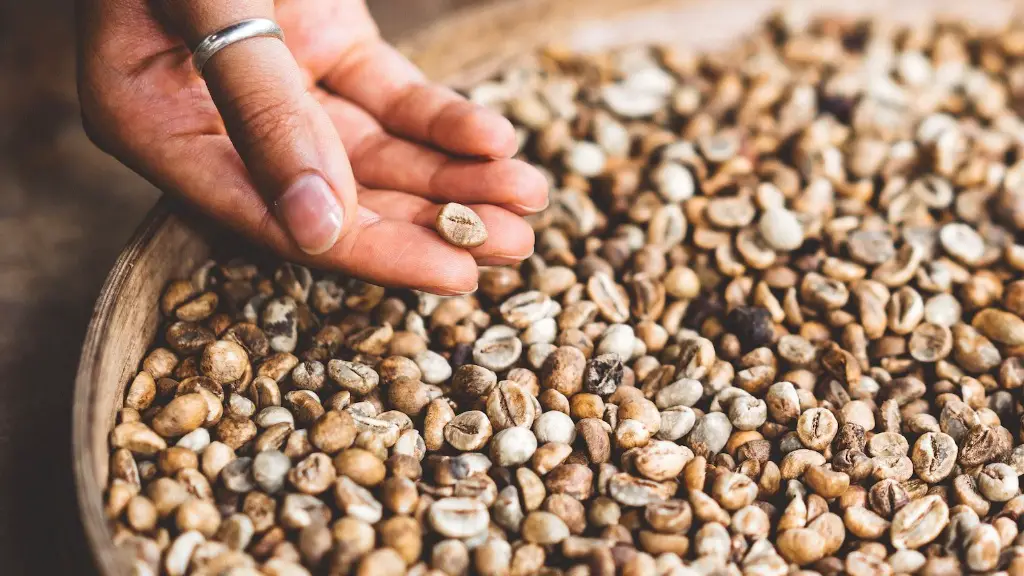We all know that coffee can be a great stimulant, helping to keep you alert and productive at any time of day. But did you know that it isn’t a good idea to drink coffee after a certain time? Many health experts agree that there are certain times of day where it is better to avoid drinking coffee, or any caffeine beverage for that matter. So if you want to stay healthy and alert, this is what you need to know about drinking coffee after a certain time.
The first thing to consider is that drinking coffee too late in the day can interfere with your sleep cycle. This is because coffee contains caffeine, a stimulant that can boost your energy levels and make you feel more alert. However, its effects can last for up to 8 hours, making it difficult for your body to wind down and get enough sleep. And insufficient sleep can lead to a host of health problems, including fatigue, irritability, and increased stress levels.
Furthermore, research has shown that drinking coffee late in the day can have a negative impact on your body’s natural circadian rhythm. This is the internal clock that regulates your hormones, metabolism, and other bodily functions. If you drink coffee late in the day, it can disrupt this cycle and lead to long-term health complications.
It’s also important to note that the effects of caffeine can differ from person to person. Some people may be able to drink coffee late in the day without any problems, while others might experience negative effects. So it’s important to figure out what works best for your individual body and lifestyle.
So when should you avoid coffee? Health experts recommend avoiding coffee after 4 pm. This gives your body enough time to wind down before bedtime, while also allowing your body’s internal clock to stay on track. Of course, this is just a general guideline and some people may find they need to avoid it even earlier.
If you’re struggling to stick to this rule, there are some things you can do to make it easier. For example, consider replacing coffee with other drinks like herbal teas. Or, switch to decaffeinated coffee if you want something with a bit of flavor. Additionally, set reminders a few hours before your chosen cutoff time to remind yourself not to drink any coffee. This will help ensure that you stick to your goal.
Benefits of Not Drinking Coffee Late in the Day
One of the main benefits of avoiding coffee after a certain time is improved sleep quality. Cutting out caffeine in the late afternoon or evening can help your body relax and prepare for a restful night of sleep, resulting in improved alertness and productivity during the day. But that’s not all. Not drinking coffee late in the day can also help reduce stress levels, enhance mood, and improve overall wellbeing.
Studies have also shown that avoiding caffeine late in the day can help reduce the risk of certain medical conditions. For example, one study found that people who drank coffee late in the day had an increased risk of developing high blood pressure, while another study linked late-day coffee consumption to an increased risk of type 2 diabetes.
Tips For Reducing Coffee Intake
If you’re looking to cut back on your coffee intake, there are some steps you can take to make it easier. First, consider reducing the amount of coffee you drink each day. This will help to minimize any withdrawal symptoms you may experience, such as headaches or fatigue. Additionally, try eating a balanced diet, exercising regularly, and drinking plenty of water — all of which can help reduce caffeine cravings.
You can also make other lifestyle changes to reduce your reliance on coffee. For example, try setting regular meal and sleep times, limit alcohol consumption, and find healthier ways to cope with stress. All of these things can help to reduce cravings and make it easier to stay away from coffee late in the day.
Dangers of Drinking Too Much Coffee
Drinking coffee late in the day isn’t the only thing you need to worry about. Drinking too much coffee throughout the day can also have negative effects. Caffeine is a stimulant and too much of it can cause jitters, headaches, insomnia, irritability, and increased heart rate. Furthermore, too much caffeine can lead to increased blood pressure, increased risk of heart disease, and impaired kidney function.
So it’s important to be mindful of how much coffee you’re drinking each day. As a general rule, health experts recommend limiting your daily intake to 2-3 cups. But keep in mind that everyone’s individual needs will vary and this is just a guideline.
Alternatives To Coffee
Finally, if you are looking for an alternative to coffee without sacrificing the energy boost, there are many great options available. For example, green tea is a good option as it contains caffeine but also provides many other health benefits. Additionally, drinks like herbal teas and kombucha are also great options for an energy boost and can be enjoyed hot or cold. So if you need an afternoon pick-me-up, these are some good alternatives to coffee.
Limiting Coffee Consumption
Limiting your consumption of coffee after a certain time of day can have many benefits. It can help improve your sleep, boost your mood, and reduce your risk of certain medical conditions. Additionally, limiting your caffeine intake throughout the day can help reduce the risk of side effects and other health problems related to excessive consumption. So if you want to stay alert and healthy, consider avoiding coffee after a certain time.
Making Adjustments To Your Caffeine Intake
If you want to make adjustments to your caffeine intake, it’s important to take it slow. Start by limiting your consumption of coffee after a certain time in the afternoon and gradually adjust it to suit your individual needs. Additionally, consider trying out herbal teas, decaffeinated coffee, or other non-caffeinated drinks for an energy boost. With some patience and dedication, you should be able to find a balance that works for you.
Getting The Most Out of Your Coffee
Finally, if you want to get the most out of your coffee, consider switching to high-quality beans and brewing methods. For example, brewing a hot cup of coffee using fresh, high-quality beans can provide far more health benefits than a weak, instant cup of coffee. Additionally, many specialty coffee shops offer a wide selection of flavorful blends that can be a great way to start your day.




